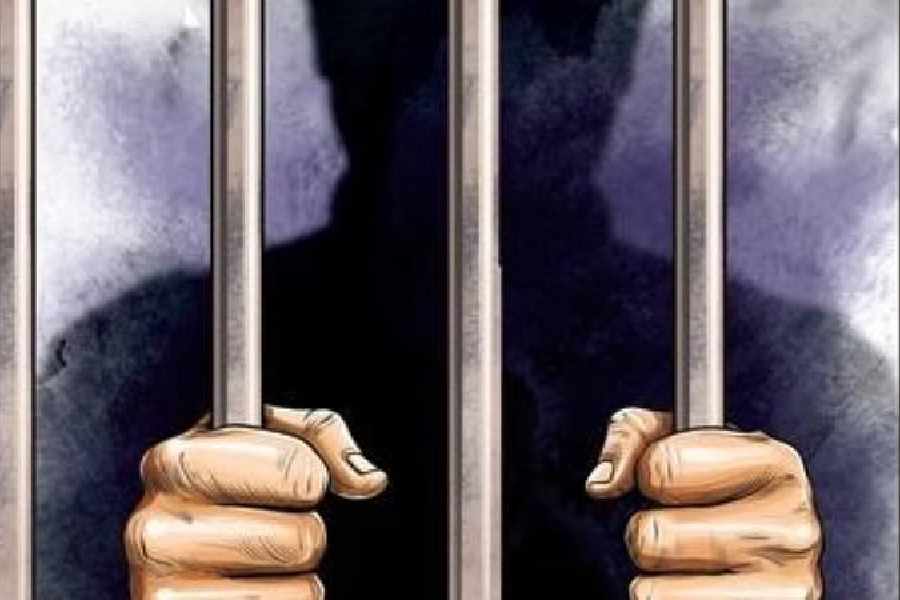The draft prison law prepared by the home ministry has suggested a host of steps like three years jail for possessing a phone, segregation of prisoners like drug addicts, first time offenders, high-risk, foreigners and grant of leave on wearing electronic tracking devices for monitoring their movement and activities.
According to the draft law, technology will be used for surveillance, there will be regular frisking of any prisoner in search of prohibited items and the prisoners may be granted prison leave on the condition of their willingness to wear electronic tracking devices for monitoring their movement and activities and any violation by the prisoner shall attract cancellation of prison leave, in addition to disqualification from any prison leave being granted in future.
The draft suggested punishment for possessing or using mobile phones and contraband. It says prison inmates are forbidden from possessing or using mobile phones and other electronic communication devices in prisons.
According to a letter of Union Home Secretary Ajay Bhalla, sent to all states and Union territories in May but uploaded in the home ministry website on Monday, the ministry has finalised "a progressive and comprehensive" 'Model Prisons Act, 2023' to replace two pre-independence era laws namely, The Prisons Act 1894 and The Prisoners Act 1900.
"With the passage of time and evolution of the ideology of reformation and rehabilitation of prisoners, many of the provisions of these colonial Acts have become outdated and obsolete in present day times," Bhalla said and suggested that the state governments and union territory administrations may be benefit from the proposed law by adopting it in their jurisdictions.
The draft says whoever, being a prisoner or a visitor or a prison official, in contravention of any provisions of the Act or rules made thereunder, is found possessing or using such devices... or supplies or attempts to supply to any prisoner, any prohibited article, and every officer or staff of a prison who, contrary to any such rule, knowingly allows any such article to be introduced into or removed from any prison, to be possessed by any prisoner or to be supplied to any prisoner... on conviction be liable to imprisonment for a term not exceeding three years, or fine not exceeding twenty five thousand rupees, or both.
It says prisons may be designed in such a manner so as to facilitate segregation and separate lodging of various categories of prisoners or for attending to special needs of prisoners, such as women, transgender, persons with disabilities, persons suffering from contagious disease or mental illness or substance abuse/old and infirm prisoners, undertrial prisoners, convicted prisoners, high security prisoners, habitual, recidivist prisoners, young offenders, civil prisoners, detenues etc, as may be prescribed under the rules.
Wherever there is no provision of a stand-alone high security prison in the state or Union territory, high risk offenders, hardened criminals and habitual offenders shall be segregated and lodged in separate barracks or cells of the jail, which shall have a provision of keeping them away from mingling with other prison inmates, young offenders, first time offenders, etc.
It suggested that the government may establish various categories of prisons and correctional institutions, such as: central prisons, district prisons, sub prisons, open correctional institutions, high security prisons, exclusive women prisons, institution for young offfenders among others.
The draft suggested classification of the prisoners according to their age, gender, length of sentence, safety and security requirements, physical and mental health needs, correctional needs, etc.
They are civil prisoners, criminal prisoners, convicted prisoners, undertrial prisoners, detenues, habitual offenders, recidivists.
The prisoners can also be classified in sub-section like drug addicts and alcoholic offenders, first time offenders, foreign prisoners, old and infirm prisoners (65+ years), prisoners suffering from infectious/chronic diseases, prisoners suffering from mental illness, prisoners sentenced to death, high risk prisoners, women prisoners with children, young offenders.
Except for the headline, this story has not been edited by The Telegraph Online staff and has been published from a syndicated feed.










